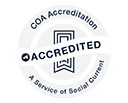Loving Homes
Governor JB Pritzker signed the Child Welfare Disclosure to Parents Act on August 15, 2025, strengthening the rights of birth parents which will help improve services to Illinois children and families.
Every child deserves to grow up safe, secure and loved. Children from all across the state of all ages, backgrounds and abilities are taken into temporary state care when their home life is unsafe. Most are temporarily placed with a loving relative or licensed foster family while DCFS strives to reunite children with their birth families through a wide range of supportive programs.
When remaining in the home simply is not safe, DCFS strives to place children with a capable and loving relative, ideally in the same community so that children can maintain important social bonds with friends, school and other emotional anchors. When a relative is either unavailable or inappropriate for a child’s needs, we rely on a broad spectrum of licensed foster families and specialized residential centers to provide a temporary safe haven with the care, nurturing and love they need and deserve until they can return home safely.
Family preservation While DCFS removes roughly 4% of reported child victims from their home to ensure their short-term safety, research shows that there are serious consequences when children are not reunified with their parents as quickly as possible. By offering and monitoring voluntary services that allow children to remain in their homes safely, the department makes every effort, under court supervision, to reunite children with their families whenever possible and as quickly as possible
Foster care is the opportunity to provide a temporary home to children who are under the guardianship of the state because their home life is unsafe. Foster care is designed to be temporary, and DCFS strives to reunite children with their birth families through a variety of supportive programs.
Adoption establishes you as a child's legal parent with all the rights and responsibilities of a child born to you. Once a child is adopted, DCFS is no longer involved in or responsible for the care, supervision or custody of the child. Adoption is permanent and lifelong, and is only possible when the birth parents have voluntarily given up their parental rights or their rights are terminated by the court.
Guardianship is another permanency option for children when it has been determined that both returning home and adoption have been ruled out. Guardianship is frequently used by relative caregivers who wish to provide a permanent home for a child in his or her care, and can be considered for children who have been living in the home of licensed relatives for a period of six consecutive months. Guardianship means that the court appoints you as the child's legal guardian. It differs from adoption because the birth parents' rights do not have to be terminated in order to appoint a guardian. When you are appointed guardian of the child, DCFS will not be involved in the care, supervision or legal custody of the child. Guardianship lasts until the child reaches the age of 18. Families becoming guardians of children in the care of DCFS may receive financial and non-financial assistance and resources.
Fictive kin: The Fictive Kin Law became effective on June 1, 2015. The law expands the definition of family to include any individual, unrelated by birth or marriage, who is shown to have close personal or emotional ties to the child or the child’s family. This means that a close family friend or godparent; or step relatives like a step-grandfather or stepsister can foster or adopt a child in care or adopt. Other relationships acknowledged are the spouse of a relative or party to a civil union. The change in law is intended to keep children who are involved with DCFS connected with safe, stable, nurturing relationships intended to last a lifetime.
You may view and print fictive kin posters in English, Spanish, French, Chinese, Polish and Arabic.


 312-814-6800
312-814-6800